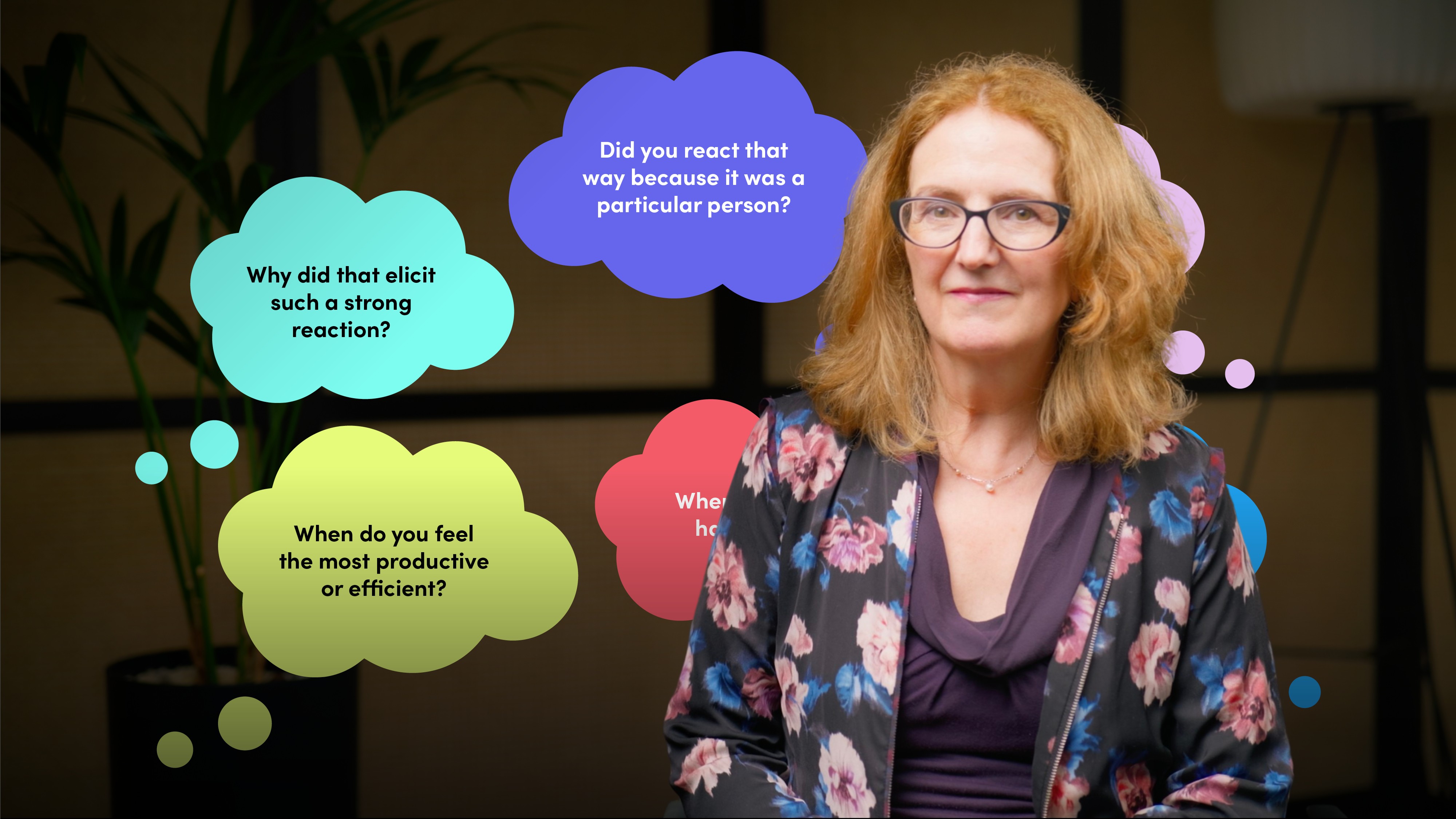
The Value of Self-Awareness I

Caroline Gourlay
"Know thyself" as the old maxim goes. Join Caroline Gourlay as she explores two of the four elements of self-awareness.
"Know thyself" as the old maxim goes. Join Caroline Gourlay as she explores two of the four elements of self-awareness.
Subscribe to watch
Access this and all of the content on our platform by signing up for a 7-day free trial.

The Value of Self-Awareness I
6 mins 22 secs
Key learning objectives:
Define self-awareness
Understand what self-understanding means
Understand what self-knowledge means
Identify how they can help you work more effectively
Overview:
Subscribe to watch
Access this and all of the content on our platform by signing up for a 7-day free trial.
- Self-knowledge: Recognising your personal traits, preferences, and tendencies
- Self-understanding: Exploring the deeper motivations and causes behind your feelings and actions
- Observe your reactions in different situations, focusing on recurring patterns
- Reflect on questions like:
- When do you feel happiest or most productive
- What types of people or situations energise or frustrate you?
- Seek feedback from trusted individuals to uncover blind spots
- Self-reflection: Take time to analyse situations that evoke strong emotions or highlight successes
- Personality assessments: Use tools like 16 Personalities for quick insights or seek qualified professionals for robust evaluations
- Feedback: Ask people you trust to share observations about you
- Self-knowledge helps you identify when and how you perform best, allowing you to structure your work to align with your strengths
- Self-understanding enables you to address the root causes of unproductive habits and adapt your responses to different situations
Subscribe to watch
Access this and all of the content on our platform by signing up for a 7-day free trial.

Caroline Gourlay
There are no available Videos from "Caroline Gourlay"



























